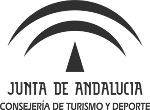Correlation between muscle dismorphy, exercise dependence and overtraining in gym goers
Abstract
Objective: The aim of this study was to verify if there is a correlation between muscle dysmorphia, exercise dependence and overtraining in gym goers.
Method: The study included 320 subjects, aged, gym goers for at least three months, with a minimum frequency of three weekly workouts, from ten different gyms, which were evaluated through three validated questionnaires related to the subjects of the besides the sample characterization questionnaire.
Results: From the data analysis, there was a moderate correlation between muscle dysmorphia and exercise dependence and a weak correlation between exercise dependence and overtraining.
Conclusion: Individuals at risk for muscle dysmorphia tend to be at higher risk for developing exercise dependence.


